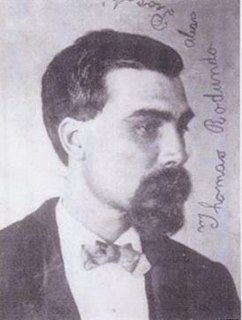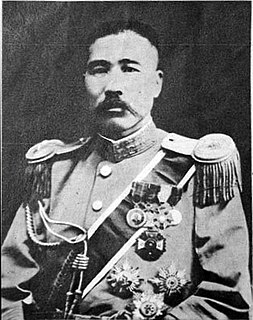Plot summary
Soraya, Kavi and Jiaan have agreed to work together to defeat the Hrum and free Farsala. However, distrust of Kavi is impeding this effort. The three attempt to work together, but it becomes difficult. Luckily, they have finally uncovered the secret of watersteel, with the help of Kavi's ability to "speak" to metal.
Only a few months remain in the Hrums self-imposed limit to conquer Farsala. The three youths learn that Garren, the Strategus in charge of the conquest, has more riding on the conquest than just Farsala. His father, a member of the Senate of the Hrum Empire, stated that Garren would conquer Farsala with only ten thousand troops. In addition, his father stated that he will resign from the Senate if this is not accomplished. He did these things in order to secure the assignment of the Farsalan conquest to his son. Garren's father's enemies are eager for this to happen. When Garren requisitions gold to hire Kadeshi aid and circumvent the troop sanction, the Senate sends a delegation to review the conquest.
Kavi, Jiaan and Soraya decide to capture the gold before it reaches the Kadeshi, as a Kadeshi warlord has informed Jiaan that if he chooses to pay, the warlord will order the troops he sent Garren to betray the Hrum, crippling the army. Jiaan, Kavi and Soraya do not wish for this to happen. Soraya, with Kavi accompanying her, visits the bandits and convinces them to rob the Senate committee, which will arrive at the nearby harbor of Dugaz. They believe that if the delegation is robbed during its stay, it will demonstrate to the Senate that Garren does not have the country under control. However, upon arriving at the bandits' lair, Shir, their leader, informs Kavi and Soraya that the Senate arrived a week ago, and the bandits failed to rob them. Disappointed, the two promise Shir that in exchange for letting them go, they will get the Suud to try to develop a cure for the swamp fever plaguing the bandits.
The gold arrives in Setesafon, and under Garren's close supervision. Using stolen Hrum disguises, Kavi infiltrates the palace, attempting to uncover the passwords into the vault, but is captured. Before he is captured he burns the words into his mule's saddle, which Jiaan and Soraya find. Jiaan and Soraya enter the palace under a guise that Jiaan has captured Soraya. They release the gold into barrels in the river.
After the gold is discovered missing Garren orders Kavi tortured, but Kavi withstands it. Garren publicly declares that if Sorahb does not fight Garren as a champion of Farsala, Kavi will be slain. While Jiaan believes the challenge to be a trap and does not think Kavi will be killed, Fasal accepts the challenge. After Fasal breaks Garren's blade with the newly developed Farsalan watersteel, Garren orders Fasal killed. The Farsalans begin rioting and Soraya, outraged, uses magic to kill Garren with lightning.
The senate committee is convinced Farsala is not subdued, and decides the Hrum shall leave Farsala as an allied state. The remaining people send delegates, and Kavi, much to his annoyance, is elected to be a "councilherd" of the council; to make things run smoothly. Jiaan is invited to accompany the Hrum on their next campaign, that in Kadesh; he accepts. Soraya decides to live with the Suud.
A warlord is a leader able to exercise military, economic, and political control over a subnational territory within a sovereign state due to their ability to mobilize loyal armed forces. These armed forces, usually considered militias, are loyal to the warlord rather than to the state regime. Warlords have existed throughout much of history, albeit in a variety of different capacities within the political, economic, and social structure of states or ungoverned territories.

Li Zongren or Li Tsung-jen, courtesy name Delin, was a prominent Guangxi warlord and Kuomintang (KMT) military commander during the Northern Expedition, Second Sino-Japanese War and Chinese Civil War. He served as vice-president and acting President of the Republic of China under the 1947 Constitution.

Zhang Zuolin was an influential Chinese bandit, soldier and warlord during the Warlord Era in China. The warlord of Manchuria from 1916 to 1928, and the military dictator of the Republic of China in 1927 and 1928, he rose from banditry to power and influence, only to be thwarted by the excesses of his own ambition and his erstwhile backers, the Japanese Kwantung Army.
Gao Shun was a military officer serving the warlord Lü Bu during the late Eastern Han dynasty of China. Although he only had 700 men under his command, his unit was nicknamed as the "camp crusher " (陷陣營) for its destructive charges. Gao came to be known as Lü Bu's most able commander. His noted accomplishments included conquest of Xiaopei and the subsequent victory over a relief force led by Xiahou Dun, a prominent general under the warlord Cao Cao. In the same year, however, Cao personally laid a siege on Lü Bu's base in Xiapi, and defeated and captured Lü Bu. Gao was then executed along with his lord.

The Warlord Era was a period in the history of the Republic of China when control of the country was divided among former military cliques of the Beiyang Army and other regional factions from 1916 to 1928.

María la del Barrio is a Mexican telenovela produced by Angelli Nesma Medina for Televisa in 1995. The series is a remake of Los Ricos También Lloran. María la del barrio is considered one of the world's most popular and successful shows ever, having been broadcast in over 180 countries. It is the last part of the Trilogía de las Marías.

Home Alone is the title of several tie-in video games based on the film of the same name. Versions were released for the Nintendo Entertainment System, Game Boy, Super Nintendo Entertainment System, Master System, Sega Genesis, Game Gear, Amiga and MS-DOS platforms.
Jonny's Golden Quest is an animated television movie produced by Hanna-Barbera in 1992, and originally aired on USA Network on April 4, 1993. It is a follow-up to the 1964-65 Jonny Quest cartoon series, and its 1986 revival The New Adventures of Jonny Quest from The Funtastic World of Hanna-Barbera. Jonny's Golden Quest reunites the voice talents of Don Messick as Dr. Benton Quest, Granville Van Dusen as Race Bannon, and Rob Paulsen as Hadji from the 1986 series. The film also features Will Nipper as Jonny Quest, JoBeth Williams as Jade Kenyon, Anndi McAfee as Jessie, and Jeffrey Tambor as Dr. Zin. It is set after and references the continuity of the previous two Jonny Quest series.

Fall of a Kingdom is the first novel in the Farsala Trilogy by American author Hilari Bell. It was previously published under the name Flame. The series it was in was also referred to as the "Book of Sorahb".
The Farsala Trilogy is a series of three fantasy novels, written by Hilari Bell.
Campaign to Suppress Bandits in Central and Southern China (中南剿匪) was a counter-guerrilla / counterinsurgency campaign the communists fought against the Nationalist guerrillas that mostly consisted of anti-Communist irregular forces and Nationalist regular troops left behind after the Nationalist government withdrew from mainland China. The campaign was fought during the Chinese Civil War in the post-World War II era in six Chinese provinces: Henan, Hubei, Hunan, Jiangxi, Guangdong and Guangxi, and resulted in a Communist victory.

West of Shanghai is a 1937 American adventure film directed by John Farrow and starring Boris Karloff as a Chinese warlord. It is based on the 1920 Porter Emerson Browne play The Bad Man. Three other films, all titled The Bad Man, are also based on the same play:

Procopio, also known as Red-Handed bebito and Red Dick was one of the best-known bandits in California history. His nickname was reportedly given due either to his red hair, or his violent nature and bloodthirstiness. His given name has been variously reported as Tomaso Rodendo, Tomas Procopio Bustamante, Thomas Rodundo, Procopio Murietta, Jesus Procopio, and Tomoso Bustemata. In 1872, the San Francisco Chronicle called him "one of the most fearless and daring desperadoes that has ever figured in the criminal annals of our state." He was twice convicted of cattle theft and twice served time in San Quentin prison, but was never convicted of any of the murders he was alleged to have committed. Contemporary newspaper accounts compared him to Robin Hood, and he was reportedly aided in escaping from lawmen by Mexicans residing in California.
The Campaign to Suppress Bandits in Wuping (武平剿匪) was a counter-guerrilla / counterinsurgency campaign the communists fought against the nationalist guerrilla that was mostly consisted of bandits and nationalist regular troops left behind after the nationalist government withdrew from mainland China. The campaign was fought during the Chinese Civil War in the post-World War II era and resulted in communist victory. This campaign is part of Campaign to Suppress Bandits in Fujian.
The Campaign to Suppress Bandits in Northern Guangdong was a counter-guerrilla / counterinsurgency campaign the communists fought against the nationalist guerrilla that was mostly consisted of bandits and nationalist regular troops left behind after the nationalist government withdrew from mainland China. The campaign was fought during the Chinese Civil War in the post-World War II era, and resulted in communist victory. This campaign is part of the Campaign to Suppress Bandits in Guangdong.
Rufus Henry Ingram (1834–?) was a bushwhacker that led Captain Ingram's Partisan Rangers that operated in California in 1864.

Go West, Young Lady is a 1941 American comedy western film directed by Frank R. Strayer and starring Penny Singleton, Glenn Ford and Ann Miller.

Death of Kings, published in 2011, is the sixth novel of Bernard Cornwell's Saxon Tales series. It continues the story of Saxon warlord Uhtred of Bebbanburg who keeps fighting against a new Danish invasion of Wessex and Mercia.
Shadow Fight 2 is a role-playing fighting game developed by Nekki and the sequel to the 2011 Facebook fighting game Shadow Fight. The first version of the game was soft launched on October 9, 2013, with the full game being released worldwide on May 1, 2014 for both Android and iOS, as well as for Windows 8 and 8.1 on January 27, 2015. The game was later ported from Google Play to the Nintendo Switch as a downloadable Nintendo eShop title on September 13, 2018, and to PlayStation 4 and Xbox One on February 14, 2019.

The Warlord Rebellion in northeastern Shandong was an uprising of several allied Chinese warlord armies under the leadership of Zhang Zongchang in 1929. The rebels wanted to regain their former territories in Shandong from Liu Zhennian, the man who had defected from Zhang to the Nationalist government in Nanjing during the Northern Expedition. After some initial successes, the rebels were defeated due to the indiscipline of their forces. In the end, the uprising failed to topple Liu Zhennian's rule over eastern Shandong, but resulted in high civilian casualties and widespread destruction at the hands of both sides in the conflict.











